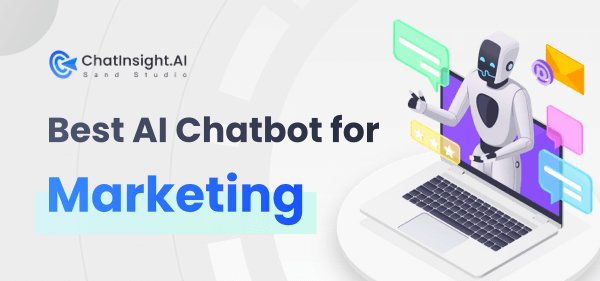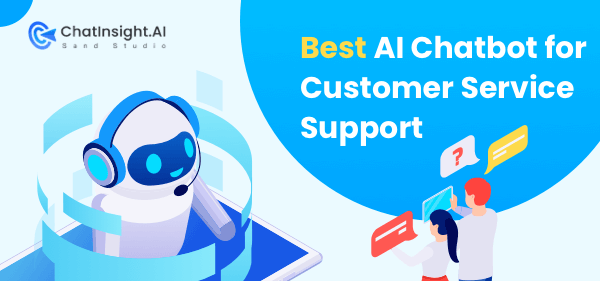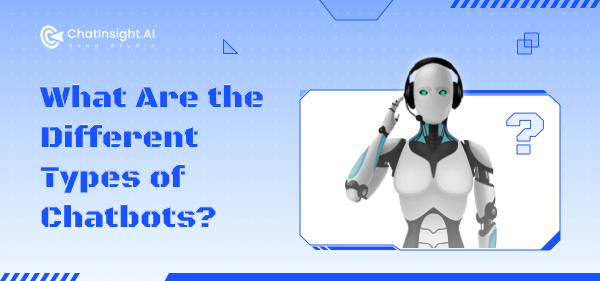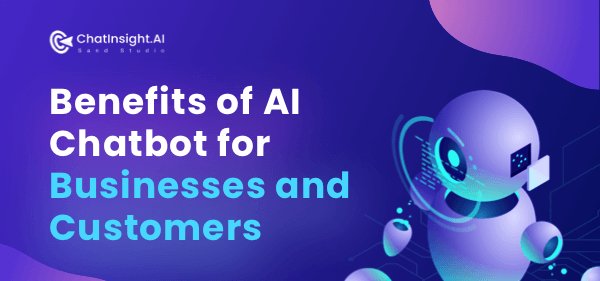Exploring the Benefits of an Event Chatbot
In the ever-evolving landscape of technology, chatbots have emerged as a prominent trend in recent years.
For instance, about 1.4 billion individuals who use messaging applications are fine to talk to chatbots.
According to another report, about 88% of consumers had one conversation at least with a chatbot in 2022.
In fact, the role of chatbots continues to expand, revolutionizing the way we interact and engage with businesses and services. These virtual assistants have revolutionized customer service, improved business efficiency, and enriched user experiences. Among the various types of chatbots, Event Chatbots take center stage. In this article, we will delve into the details of event chatbot and their benefits.
1What is an Event Chatbot?
An event chatbot is a computer program designed to interact with attendees or participants during a live event, such as a conference, webinar, or sports event. Event chatbots are typically integrated into event management platforms or conference apps and use artificial intelligence (AI) technologies like Natural Language Processing (NLP) to understand and respond to questions and provide support.
They can serve as virtual assistants for event organizers and attendees, guiding participants through event schedules, answering questions about the event, and offering support.
Event chatbots can also be used to personalize the conference attendee experience by providing tailored information and recommendations. Additionally, chatbots can be used in event management to aid in tasks such as showing booking dates, allocating seats, and providing venue information.
2How Do Event Chatbots Work?
The working mechanism of Event Chatbots is a multi-step process. Firstly, the bot collects user input through various channels, including text, voice, or even visual cues. Then, utilizing NLP technology, the bot analyzes the input, extracting the intent and entities involved.
This information is then processed and matched against a vast knowledge base, enabling the bot to generate an appropriate response. The response is delivered to the user through the same communication channel.
This working mechanism ensures a smooth and interactive conversation between the event chatbot and the user.
3Event Chatbots vs. Traditional Chatbots
Today, businesses and organizations are seeking innovative ways to enhance customer engagement and deliver personalized experiences. Chatbots have grown significantly in recent years. These conversational agents have become an integral part of customer support, marketing, and even event management. However, when it comes to events, event chatbots are emerging as the latest trend.
However, in this section, we will see event chatbots vs. traditional chatbots to see which is more advantageous.
Event Chatbots
Event chatbots are advanced conversational agents specifically tailored for event management. Unlike traditional chatbots, event chatbots leverage technologies like machine learning and natural language processing to gain a deeper understanding of individual users' profiles, preferences, and contexts. It allows them to deliver hyper-personalized assistance and recommendations before, during, and after events.
Advantages of Event Chatbots
- Event chatbots can gain a deeper understanding of individual users through technologies like machine learning and natural language processing. It allows them to provide highly personalized assistance before, during, and after events based on user profiles and preferences.
- Event chatbots are designed specifically for integration with event platforms and services. They can seamlessly provide context-aware help.
- Event chatbots can facilitate highly personalized pre-event engagement and conversations by understanding users on an individual level. It transforms rigid interactions into personalized experiences that drive higher engagement.
Disadvantages of Event Chatbots
- Developing personalized event chatbots requires significant investment in technologies like machine learning and natural language processing. It results in higher upfront costs.
- The personalized capabilities of event chatbots are dependent on having access to large datasets on individual users and events. It limits their effectiveness for new events with limited data.
Traditional Chatbots
Traditional chatbots are rule-based systems that rely on predefined responses and scripts. They are designed to answer basic questions and direct users to relevant information or human agents for complex queries. While useful for basic customer support, traditional chatbots have limited personalization capabilities.
Advantages of Traditional Chatbots
- Traditional chatbots are effective for answering basic questions and directing users to relevant information.
- Traditional chatbots rely on rule-based programming and scripts, which have lower upfront costs compared to advanced technologies used in event chatbots.
Disadvantages of Traditional Chatbots
- Traditional chatbots have very limited abilities to personalize responses.
- Due to their rigid, scripted nature, traditional chatbots cannot facilitate the kind of personalized engagement needed to transform event experiences.
By understanding users on an individual level, event chatbots can facilitate highly personalized pre-event engagement through tailored conversations. Overall, event chatbots revolutionize engagement by transforming rigid interactions into personalized experiences.
4The Benefits of an Event Chatbot
Here are different ways an event chatbot can benefit your next event:
1. 24/7 customer support
Event chatbots enable around-the-clock communication with attendees to answer common questions and provide assistance whenever needed. Instead of relying solely on a contact email or call center with limited availability, you can offer instant support at any time of day through an automated chatbot.
From general event info to personal account questions, it acts as a virtual assistant attendees can access on their schedule.
2. Instant communication and updates
Event chatbots help you keep attendees informed in real time through targeted chatbot messaging. You can quickly notify them of any scheduling changes, new speakers, or logistics updates through the chat platform.
The event chatbot allows you to reach every attendee instantly rather than waiting and hoping an email gets read. Push out alerts, reminders, and announcements as needed to keep people in the loop.
3. Costs and time savings
Event chatbots significantly reduce the staffing requirements for basic event functions like registration, creating attendee badges, managing food orders and answering FAQs.
You can save money on labor costs by automating these repetitive tasks that previously required manual effort. Staff is also freed up to focus on high-level event delivery. On the attendee side, event chatbots enable self-service for common needs, which creates quicker turnaround times.
4. Administrative tasks and logistics
Event chatbots can take over administrative tasks and provide logistic guidance to optimize operations better.
As a virtual assistant, it can process registrations, facilitate room or meal selections, generate custom schedules, and even offer recommendations during the event. The chatbot acts as an always-available info desk that takes over the grunt work.
5. Give surveys and collect feedback.
Understanding attendee needs and event performance is crucial. An event chatbot can instantly distribute surveys as well as prompt feedback throughout the agenda. This allows attendees to provide input in real-time versus waiting until days later when an emailed survey arrives.
Additionally, the chatbot lets you analyze data immediately to uncover insights that improve future events.
5How to Create an Event Chatbot?
When selecting a chatbot for your event, there are several important factors to evaluate to ensure you choose the right solution.
Define your event needs
Determine the key tasks the chatbot will perform, such as providing schedules, handling tickets, giving venue directions, or enabling attendee networking. Clearly defining requirements upfront will help narrow options.
Consider ease of development.
Look for platforms with user-friendly tools that allow non-technical teams to build experiences without coding. However, ensure the selected platform also provides customization flexibility if full control is required.
Evaluate integration options
The chatbot must integrate smoothly into your event website, apps, and other systems attendees will use to access it. Popular integration channels include messaging platforms, mobile apps, and websites.
However, you must test demo conversational interfaces to evaluate factors like natural language abilities, smooth dialog flows, and overall engagement for better selection.
Review pricing and support.
Compare total costs and ensure they fit your budget. Don’t forget to assess support offerings, which is especially important for complex chatbots requiring ongoing improvements.
Ensure analytics capabilities
The ability to track metrics, identify gaps, and iterate the chatbot based on data and feedback is crucial for continuous enhancement. So, you must select platforms with robust analytics tools.
6Tips for You When Creating Chatbot for an Event Chatbot
When developing a chatbot for an event, there are several important best practices to follow to ensure it meets requirements and delivers an optimal user experience.
Define Clear Objectives
Determine the key tasks the chatbot must perform. Chatbots can handle multiple tasks, having well-defined objectives helps with proper scoping, for example:
- Providing schedules
- Handling RSVPs
- Giving directions
- Enabling networking.
Start Simple
Begin with basic conversational capabilities and a small set of frequently asked questions before expanding. Taking an iterative approach allows refining based on user feedback.
Use Natural Language
Focus on natural language interactions over rigid menus/buttons for usability. Continuously expand the chatbot's vocabulary through machine learning as conversations increase
Test Thoroughly
Conduct user testing at each stage of development to identify gaps or issues. Test on both desktop and mobile to ensure cross-platform consistency
Integrate Smoothly
The interface should integrate seamlessly into your event website, apps, and other systems attendees use for a cohesive experience. Popular integrations include messaging platforms, mobile apps, and websites.
Provide Ongoing Support
For complex chatbots, support is important for continuous improvement. Monitor conversations, gather feedback, and regularly update the bot's knowledge.
Following these best practices helps develop an effective, engaging chatbot tailored to event needs that enhance the attendee experience. Iterative development and testing are also crucial for success.
Conclusion
With the rise of conversational interfaces, event chatbots have become a popular way for event organizers to enhance the attendee experience and provide support. However, with so many chatbot platforms and options available today, choosing the right one can feel overwhelming.
Future AI trends, ChatInsight.AI can be your best event chatbot to consider here. This AI-powered event chatbot offers accurate responses in multiple languages. The availability of a 24/7 support system makes it the right choice for everyone. So, you must give it a try to enjoy all the benefits of event chatbots without any hassle.
FAQs:
1. Are Event Chatbots Going to Replace Humans?
Event chatbots are designed to enhance user experiences and provide personalized assistance during events. While they can automate certain tasks and provide valuable support, they are not intended to replace humans entirely.
2. How do Event Chatbots enhance attendee experiences?
Event chatbots enhance attendee experiences by providing personalized and real-time assistance. They can help attendees navigate event schedules, provide recommendations for sessions or activities based on individual preferences, offer information about speakers or exhibitors, assist with registration, and more.
3. Can Event Chatbots handle large volumes of user interactions?
Yes, event chatbots are designed to handle large volumes of user interactions. They can efficiently manage inquiries, respond to common questions, and provide instant support to multiple users simultaneously.







Leave a Reply.